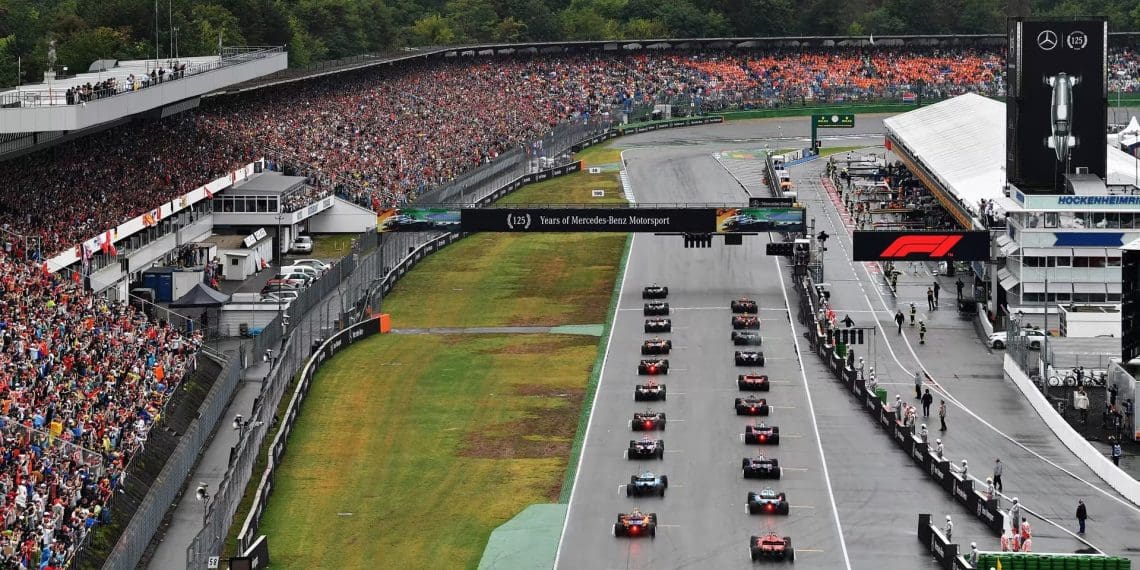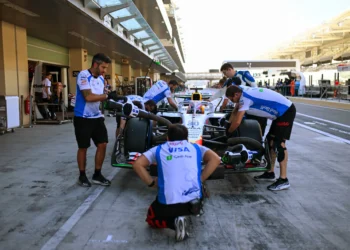Fans yearning for the return of the German Grand Prix to the Formula 1 calendar will have to keep waiting, as both Nürburgring and Hockenheim grapple with financial challenges. Once a staple of the F1 season, Germany’s iconic tracks now find themselves sidelined as the sport’s skyrocketing costs create a steep barrier for re-entry.
Nürburgring: The financial mountain too steep to climb
The Nürburgring last hosted Formula 1 during the Covid-hit 2020 season for the Eifel Grand Prix, rekindling hopes of a permanent return. However, Alexander Gerhard, a spokesperson for the venue, recently dashed those hopes. Speaking to Sky Germany, he revealed the harsh truth: Formula 1 is simply out of reach for the privately owned circuit.
“For [financial] reasons, the plan is not feasible for us as a private company in this form,” Gerhard admitted. “Since the last discussion, more than a year ago, no further talks have taken place with the organiser of the series.”
Despite its deep ties to F1 history, from hosting the inaugural German Grand Prix in 1951 to being immortalized by legendary drivers like Michael Schumacher and Sebastian Vettel, the Nürburgring faces insurmountable financial demands. As Formula 1 prioritizes venues with robust infrastructure, entertainment facilities, and massive spectator capacity, traditional tracks like the Nürburgring find themselves left behind.
Hockenheim: Cautious optimism, but no guarantees
Meanwhile, Hockenheim—the last German circuit to host an F1 race in 2019—isn’t faring much better. The venue, famed for its stadium complex, has seen financial turmoil in recent years. However, under the ownership of the Emodrom Group, Hockenheim is making strides toward reinvention.
Tim Brauer, Managing Director of Emodrom, expressed cautious optimism about F1’s return but emphasized the need for financial prudence.
“We have been working in the background for more than four years to further develop the Hockenheimring as a leading racing circuit and are now keen to realise future-oriented projects,” Brauer told Welt. “Of course, we are also thinking about Formula 1, but we approach such considerations with great caution. We are not going to do anything crazy financially, but we are trying to find ways to bring Formula 1 back to Germany.”
A crowded race for F1 calendar spots
Even if financial hurdles were cleared, Germany’s chances of reclaiming a spot on the 24-race F1 calendar are slim. New markets such as Rwanda and South Africa are vying for inclusion, while long-standing races like Belgium are scaling back their appearances. The competition for F1 slots has never been fiercer.
Audi and Hulkenberg add weight to the German cause
Germany’s rich F1 legacy, bolstered by drivers like Nico Hülkenberg and Audi’s pending debut with Sauber in 2026, adds intrigue to the prospect of a German Grand Prix revival. Hülkenberg, who will spearhead Audi’s entry, shared his hope for a comeback.
“I think it’s possible, but obviously there’s a lot of commercial factors that need to be met,” Hülkenberg said. “In F1, never say never. Things change very quickly here. I wouldn’t be surprised if we had a German Grand Prix back in a few years.”
When asked about his preferred venue, Hülkenberg leaned toward the Nürburgring. “I also like Hockenheim, but I think personally I would choose Nürburgring. It’s a bit more old-school and very historic.”
What’s next for German F1 fans?
While a return of the German Grand Prix remains a tantalizing possibility, the path forward is fraught with challenges. Financial demands, fierce competition from emerging markets, and Formula 1’s evolving priorities mean that Germany’s legendary circuits must wait for their moment.
For now, fans can only dream of the day when the roar of F1 engines returns to the Nürburgring’s iconic bends or Hockenheim’s historic straights.










